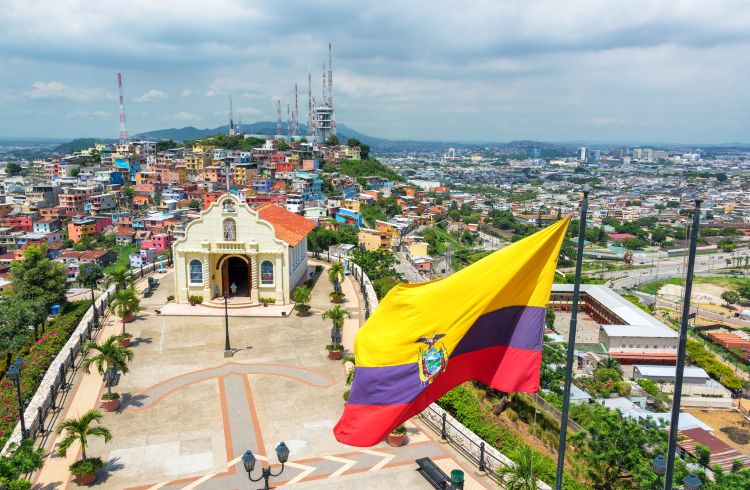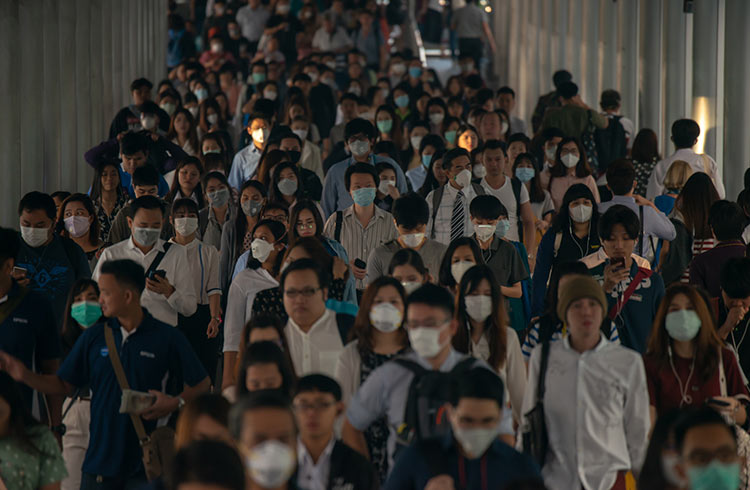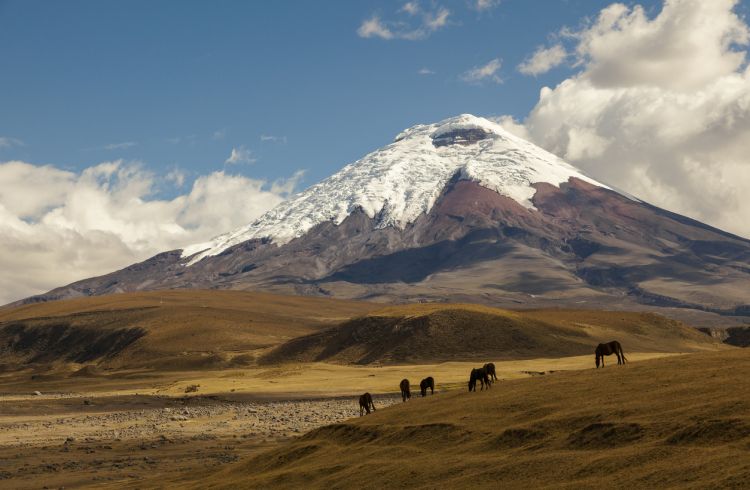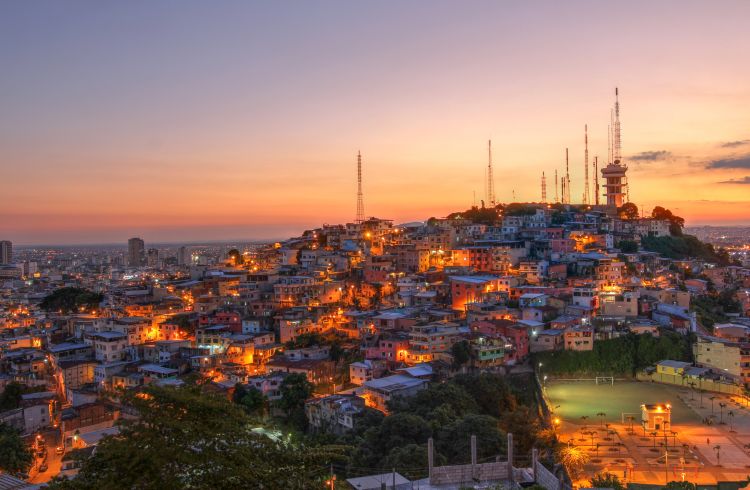Latest Travel Alerts and Warnings for Visitors to Ecuador
What are the issues affecting travelers in Ecuador? Read the latest travel warnings and alerts.
 Photo © Getty Images/Jesse Kraft-EyeEm
Photo © Getty Images/Jesse Kraft-EyeEm
Listen to The World Nomads Podcast: Ecuador
Previous travel alerts for Ecuador
State of emergency over fuel subsidies - October 2019
The Ecuadorian government has issued an alert ordering citizens to stay indoors. The army has been deployed to combat violence across the country, which broke out last week after the Ecuadorian president announced his decision to end fuel subsidies, which caused diesel and petrol prices to rise dramatically.
Expect cancellations or disruptions to travel plans in the coming days, including flights, transport and tours. It is important travelers stay up to date with local media and avoid traveling to any destinations marked as unsafe or "Do Not Travel" by your government travel advisories. The U.S Department of State has alerted it's citizens should not travel between cities or provinces until further notice.
The UK Foreign Office has raised the level of its travel advice for Ecuador to "against all but essential travel", but Galapagos Islands are excluded from that warning. This may have an impact on the future travel plans of UK travelers (while the advice is in place). Please read your policy wording carefully or contact us at World Nomads if you need clarification on our cancellation and curtailment cover.
Travelers who are in Ecuador should avoid any crowds or protests. Last week, violent protestors in Quito were seen throwing petrol bombs, stones and vandalizing public buildings.
6.0 magnitude earthquake on the coast of Ecuador – 3 December 2017
A magnitude 6.0 earthquake shook the Ecuadorian coast. The epicenter was located near the town of San Vicente, northeast of Bahia de Caraquez. No injuries or fatalities were reported however minor cracks were found in buildings and power supplies were interrupted in rural areas. There was no risk of a tsunami.
7.8 magnitude earthquake - 16 April 2016
The strongest earthquake to hit Ecuador in decades has caused massive damage to a wide swath of the country’s central coast; more than 350 people are reported dead and more than 2,500 injured. The 7.8 magnitude temblor struck on Saturday night, April 16, with an epicenter 16 miles southeast of the coastal town of Muisne.
Heavy damage and casualties are reported in Portoviejo, the provincial capital of Manabí, as well as the resort town of Pedernales. The earthquake’s effects have been felt from the city of Esmeraldas in the northwest to the southern port city of Guayaquil, some 250 miles away. The quake and its aftershocks were also felt in the Ecuadorean capital of Quito.
The airports in both Quito and Guayaquil are open, though flight disruptions may still occur. There has been extensive property and infrastructure damage, including buckled roads and collapsed bridges; landslides fueled by recent rains have also closed roads.
“The Ecuadorean spirit knows how to move forward and will know how to overcome these very difficult moments,” says Ecuadorean President Rafael Correa, who has declared a state of emergency in six of the country’s 24 provinces. Thousands of police, military and rescue workers have been mobilized for the hardest-hit areas.
What to do if an earthquake strikes while you're in Ecuador
Ecuador is prone to seismic activity given it sits on the Nazca and South American plates. The Ecuadorian government has put measures in place, including better building construction practices since the M7.8 earthquake in 2016.
- Expect aftershocks
- Each time one is felt, drop, cover, and hold on
- Check yourself first for injuries and get first aid if necessary before helping injured or trapped persons
- Assess your accommodation for damage. If the building appears unsafe get everyone out. Use the stairs, not an elevator and when outside, watch out for fallen power lines or broken gas lines
- Stay out of damaged areas
- Look for and extinguish small fires if it is safe to do so. Fire is a significant hazard following earthquakes
- Listen to the radio for updated emergency information and instructions
- Do not overload phone lines with non-emergency calls
- Help people who require special assistance - infants, elderly people, those without transportation, families who may need additional help, people with disabilities, and the people who care for them.
If you are injured or sick following an earthquake?
The risk of injury is high. Put on sturdy footwear and protective clothing (long-sleeved shirts, trousers). Tetanus is a potential health threat for cuts and grazes. Any wound, cut, or animal bites should be immediately cleaned with soap and clean water. Seek immediate medical review should you become injured.
Wash your hands often using soap and water to help prevent the spread of disease. Waterless alcohol-based hand rubs may be used when soap and/or water are not available and hands are not visibly soiled.
Natural disasters can disrupt water supplies and sewage systems. If bottled water is not available, water should be boiled or disinfected.
Food should be carefully chosen to reduce the risk of getting a gastrointestinal illness. Avoid salads, uncooked vegetables and milk products, such as cheese. Ensure your food is freshly cooked and has not been sitting around. Food’s that has been cooked and is still hot or fruit that has been washed in clean water and then peeled by the traveler personally are safer to eat.
Gastroenteritis outbreaks can occur following a disaster. Diarrhea may be accompanied by a high fever or passing blood in diarrhea. Replacing lost fluids by drinking clean water is important or the use of oral rehydration solutions.
Who to call if you're in trouble
- Police: 101
- Ambulance: 131
- Emergency (in major cities of Ecuador only): 911
- World Nomads Emergency Assistance
Before you buy a travel insurance policy, check your government travel warnings and health advice – there may be no travel insurance cover for locations with a government travel ban or health advice against travel.
Related articles
Simple and flexible travel insurance
You can buy at home or while traveling, and claim online from anywhere in the world. With 150+ adventure activities covered and 24/7 emergency assistance.
Get a quote


No Comments